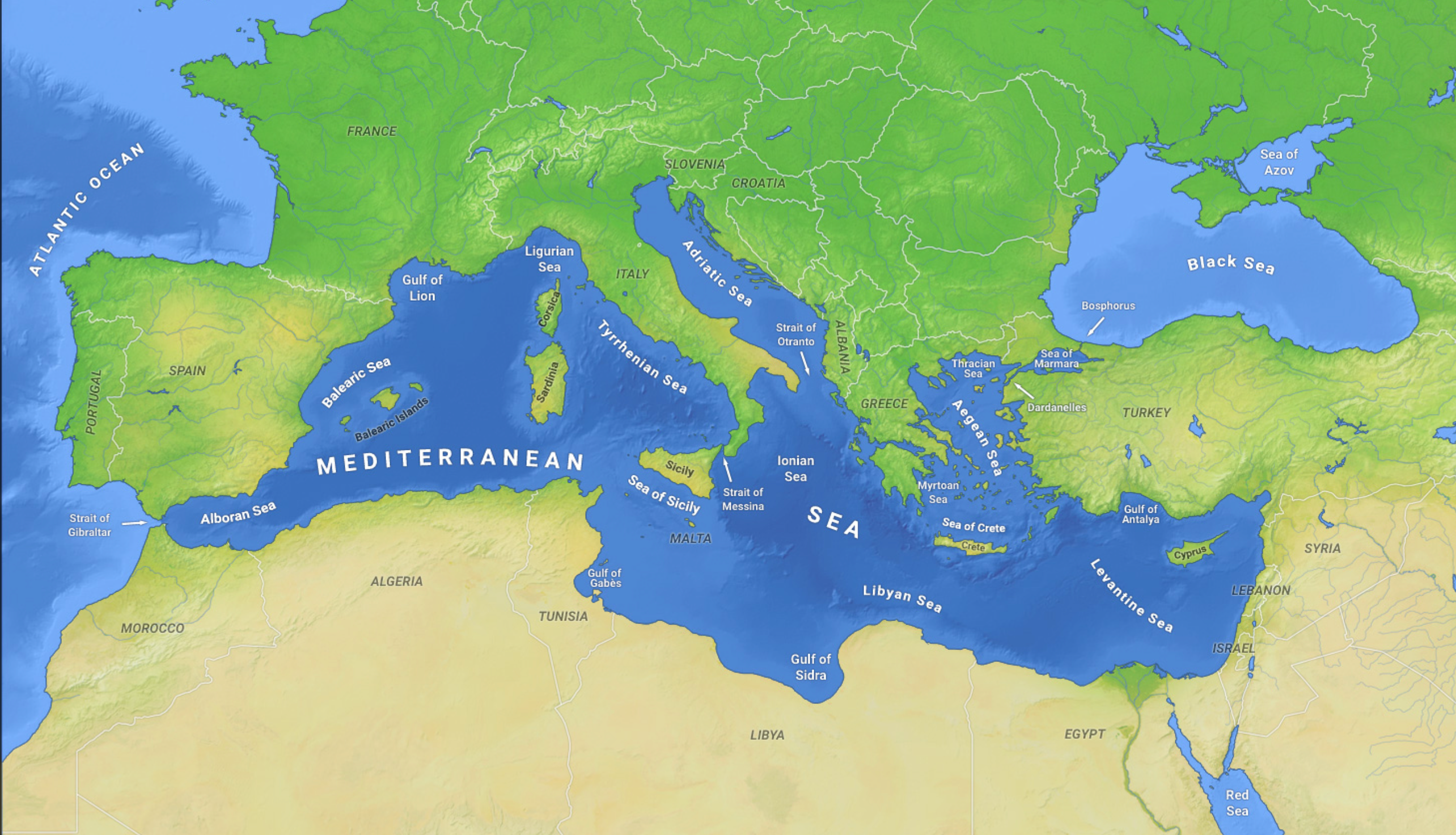Jared Moelaart
The Mediterranean Basin is a trans-continental area that spans across parts of Europe, Africa, and the Middle East with a wide range of topographical and geological features. The geography in this expansive region includes an assortment of refined landscapes – including rocky mountains, coastal wetlands, (semi-arid) deserts, scrub, and sandy beaches. These climate zones are considered temperate and can be found in any geographical region between the 30th and 45th degree parallels, relative to the equator. Climate conditions in the Mediterranean Basin may include “hot dry-summer” and “cold dry-summer” sub-climates, which are associated with semi-rich, fertile soil and suitable agricultural conditions for a large quantity of crops. These areas can further be characterized by warm and dry summers with mildly wet winter periods, where snow is rarely or seldom present.
When talking about it, the Mediterranean Diet can be referred to as the human consumption of bioavailable foods grown in various geographical regions that surround the Mediterranean Sea. This diet primarily consists of plant-based foods including copious amounts of fruits, vegetables, grains, nuts, and legumes. Specifically, wheat, olives, grapes, and their derivative products make up a significant portion of this particular diet. The Mediterranean diet is also known for containing many nutritious and healthy foodstuffs – both raw and cooked – which possess an abundance of essential vitamins and nutrients that enable a holistic functioning of the human body. For example, olive oil is one staple ingredient used to cook and prepare many typical meals in the Mediterranean diet, which is often associated with the intake of large amounts of nutritious vegetables – including many raw salads, roasted vegetables, and cooked legumes (Trichopoulou & Lagiou, 1997). Populations whom adhere to the Mediterranean diet and lifestyle also consume small to moderate amounts meat, seafood, poultry, and some local dairy as vital sources of protein - while these foods are still less frequently eaten than the stapled, plant-based foodstuffs. Fresh herbs and ground spices are traditionally used to season and add flavor into Mediterranean foods, simultaneously increasing the nutritional value of this particular diet. This becomes evident when comparing the natural flavor agents to other processed alternatives, such as salt and sugar, which are used for flavor in many standard western diets.
Some research also suggests there are advantageous health outcomes for populations that are exposed to the traditional Mediterranean diets (Sofi et al., 2008). For example, the consumption of many fruits, vegetables, grains, and olive oil ensures a high intake of Beta-Carotene, Vitamin C, tocopherols, as well as other non-nutrient substances – such as polyphenols and anthocyanins. When compared to other regions of the world, the traditional Mediterranean diet also possesses a higher ratio of monosaturated to saturated fats, which results in a greater uptake of energy from this fat source. Moreover, a moderate consumption of dairy products (mostly pasteurized milk, cheese, and yogurt) as well as lower amounts of red meat consumption are often described as reasons why coronary heart disease and cancer rates are lower amongst individuals who live in Mediterranean regions (Sofi et al., 2008).
Lower mortality rates and a higher life expectancy in the Mediterranean region (despite a greater prevalence of cigarette-smoking) when compared to other areas also suggests that potential environmental factors – including benevolent geography and a suitable agricultural climate – may be partially responsible for greater health outcomes in this specific region. These environmental factors are also often correlated with increased levels of physical activity and decreased stress levels. Furthermore, a preservation of the extended family structure in the Mediterranean region can often be linked to the consumption of elaborated meals including many raw, healthy, and cooked foods with less processed additives and deliberately mindful consumption habits (Trichopoulou, 1997).





0 comments